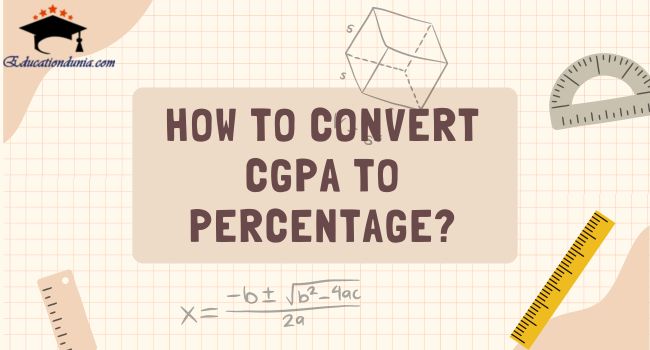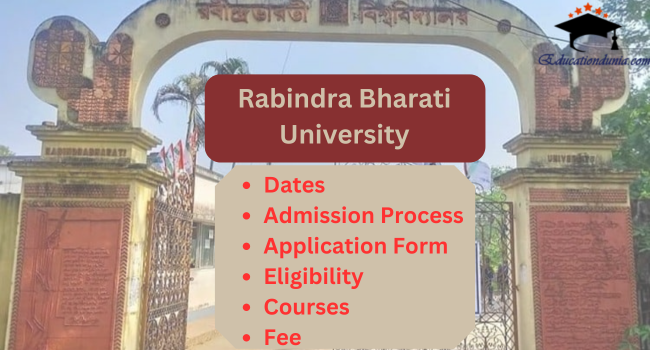Blog Details
.jpg)
- By Danish
- January 30, 2025 12:00 AM
Law Courses after 12th in India: Fee, Eligibility , Exams, Last Date, application form
Law Courses After 12th: Students who are interested in the law field can pursue a law course at multiple levels. Some of those levels include Undergraduate, Diploma, or Certificate. The eligibility criteria for these law courses require the applicants to pass their 12th class from a recognized board of education. Students will also have to appear in a relevant entrance exam like CLAT 2025 or other university/college-conducted entrance exams. LLB, Diploma in Company Law, Post Graduate Diploma in Law, Certificate in Human Rights, BA LLB, etc are the popular Law courses after 12th.
These courses give you exposure to how the judicial system of a country like India works, what are the steps involved in passing the jurisdiction, etc. Opting for Law courses after the 12th can help you gain a better understanding of the numerous areas of law, litigation, and related subjects. With Law courses available at the undergraduate, postgraduate, and doctoral levels, these courses are career-oriented.
Opting for Law courses after 12th will help the students get a firm understanding of the basics of the subject and the areas related to it. Getting admission to the Law Courses After 12th is quite simple and is mainly done on two bases: Entrance Exam or Merit Based. The Entrance exams like AIBE, CUET PG, CLAT, AILET, SLAT, LSAT, IPU CET, and PU LLB must be taken to enrol in the top institutions which are offering law courses after 12th.
The first law University in India was formed in Bangalore, named "National Law School of India University." In this way, the LLB degree was started in India. In 2012, the Indian Government launched an L.L.M. degree for one year. Law is commonly understood as a system of rules created and enforced through social or governmental institutions to regulate conduct, although its precise definition is a matter of longstanding debate.
Law Courses After 12th Admission Updates
- LLOYD Law College has opened the admission portal for Law courses and the last date to apply for admission is 28 February 2025. Interested Candidates can apply for admission by visiting the official portal of the university. Apply Now
- Shree Guru Gobind Singh Tricentenary (SGT) University started the admission procedure for the 2025-26 academic session. 28 February 2025 is the law course after the 12th last date to apply. Source
Law Courses After 12th
Students who dream of becoming successful lawyers can enroll themselves in any law course instantly after completing their 12th grade. The law course at the level of Undergraduate has a duration of 3-5 years. Students can pursue a law course as a diploma, undergraduate, certificate, or integrated degree course. Many educational institutions offering this course are all geared up toward starting the admission procedure for the law courses for the current academic session of 2025-26. Aspiring students can take part in the process of granting admission at any of the institutions like Symbiosis Law School, Guru Gobind Singh Indraprastha University, IMS Law College, and so on.
List of Law Courses After 12th
Law Courses after 12th provide you with exposure to the judicial system of our country. You get to know about the complete process of passing a judgment to develop your skills like communication skills, problem-solving, etc. Some of the top Law Courses after 12th that students prefer to opt for are:
- BA LLB
- BBA LLB
- BCom LLB
- BSc LLB
- BA LLB (Hons)
There are some law courses after 12th to choose from for making a career in it. Most of these Law Courses are integrated degree courses that involve the study of two different degree courses. For e.g., if you opt for BBA LLB, then you get to learn about BBA (Bachelor of Business Administration) courses as well as Bachelor of Laws courses. These integrated degree courses help you widen your knowledge in different fields. We have compiled a list of the top Law Courses after 12th for you to choose from.
| Law Courses after 12th | Full-Form | Law Course Duration |
| BA + LLB (Hons) | Bachelor of Arts & Bachelor of Legislative of Law (Honours) | 4 to 5 years |
| BA + LLB | Bachelor of Arts & Bachelor of Legislative of Law | 5 years |
| B.Com + LLB | Bachelor of Commerce & Bachelor of Legislative of Law | 5 years |
| BSc + LLB (Hons) | Bachelor of Science & Bachelor of Legislative of Law (Honours) | 5 years |
| BBA + LLB (Hons) | Bachelor of Business Administration & Bachelor of Legislative of Law (Honours) | 5 years |
| BSL + LLB | Bachelor of Socio-Legal Sciences & Bachelor of Law | 5 years |
| BBA + LLB | Bachelor of Business Administration & Bachelor of Legislative of Law | 5 years |
| B.Com + LLB (Hons) | Bachelor of Commerce & Bachelor of Legislative of Law (Honours) | 5 years |
| BTech + LLB | Bachelor of Technology & Bachelor of Legislative of Law | 6 years |
| BSc + LLB | Bachelor of Science & Bachelor of Legislative of Law | 5 years |
How to Become a Lawyer after 12th?
After a student completes their 12th grade, they become ready to take the first step toward achieving their dream of becoming a lawyer. The course of LLB or an integrated course of LLB like BA LLB, BCom LLB, and others is the first and the only way one can become a lawyer. Candidates can complete this course in the duration of 3 or 5 years, depending on the type of course they have chosen. And in order to become eligible for pursuing these law courses at a reputed university or college, students will need to appear in CLAT.
Further, students should also pay attention to performing well in all the semester examinations conducted during their pursuing years of law courses after 12th. They should engage in enhancing their practical knowledge of it by doing several internships and performing well in other practical activities conducted as a part of the law course’s curriculum. Engaging in these activities helps the students in getting the offer of becoming a lawyer at various law firms. With time, they can also work as a lawyer in high courts and supreme courts and become successful lawyers.
Which Law Course is Best After 12th?
There are many law courses for which a student becomes eligible after the completion of their 12th class. However, the levels of these law courses after 12th might differ; some might be offered at the level of Undergraduate and some at the Diploma level. The duration that is taken for completing any law courses after 12th ranges from 3 - 5 years, depending on the type and level of that particular course. In these law courses, they are educated and made fluent in several types of laws like family law, environmental law, corporate law, etc.
While the law courses that can be labeled as the Best Law Courses after 12th depend on the personal interest of a candidate, there are some courses that are beneficial for the career of almost every type of student irrespective of all the other factors. We will be mentioning all of those courses in the table created below.
Some of the Best Law courses After 12th are as follows:
| Course Name | Duration |
| BA LLB | 5 years |
| BCom LLB | 5 years |
| Diploma in Corporate law | 1 year |
| Diploma in Taxation Law | 1 year |
| Post Graduation Diploma in Cyber law | 1 year |
| Post Graduation Diploma in Law | 1 year |
Also, Check the Other Important Courses After 12th
Law Courses After 12th duration
Students who have completed their 12th class and are planning to pursue any law course should be informed about all the related details. The duration of these courses is one such detail which a student should be clear about before applying for any law program. This section of the article of Law Courses After 12th is dedicated to the duration which will be required to complete a law course.
The duration of Law courses after 12th are mentioned below:
- Diploma law courses usually have a duration of 1 or 2 years. (Diploma in Labour Law, Diploma in Human Rights Law, Diploma in Business Law)
- An integrated law course can be completed in a duration of 5 years (BA LLB, BBA LLB, BCom LLB).
- A Certificate law course takes the duration of 1 year to complete. (Certificate in Advanced Contract Drafting and Legal Writing, Certificate in Maritime Law, Certificate in Intellectual Property Law and Management).
Law Subjects
- Legal Writing
- Consumer Protection Law
- Constitutional Law
- Jurisprudence
- Family Law
- Administrative Law
- Company Law
- Labor Law
Law Courses After 12th Arts
Law Courses after 12th can be pursued by the students of any stream i.e. science, commerce, or arts. Admission to the law courses is done based on the marks scored in the entrance examination conducted by the colleges across India and also the bodies regulated by the government. Some of the entrance exams that you might consider for admission to the law courses after 12th are CLAT, AILET, SET, and AIBE. The registration for many colleges has already concluded and some of them are still going on. Students can visit the official website of the college they want admission to to check the dates for admission.
Some of the law courses after 12th arts offered to the students are mentioned below:
| Course Name | Duration |
| BBA LLB | 5 years |
| BA LLB | 5 years |
| Diploma in Taxation Laws | 1 year to 2 years |
| Diploma in Information Technology Laws | 1 year to 2 years |
| Diploma in Human Rights | 1 year to 2 years |
| Diploma in Criminal Law | 1 year to 2 years |
| Diploma in Business Law | 1 year to 2 years |
| Diploma in Corporate Law & Management | 1 year to 2 years |
| Diploma in Cyber Law | 1 year to 2 years |
| Diploma in Co-operative Law | 1 year to 2 years |
| Certificate Course in Cyber Law | 6 months to 1 year |
| Certificate in Labor Law | 6 months to 1 year |
| Certificate in Law (Cyber security, Human Rights) | 6 months to 1 year |
| Certificate Course in Insurance Law | 6 months to 1 year |
| Certificate in Corporate Law | 6 months to 1 year |
| Certificate in Taxation Law | 6 months to 1 year |
| Certificate Course in Consumer Protection | 6 months to 1 year |
| Certificate Course in Business Law | 6 months to 1 year |
Law after 12th Commerce Without Maths
Law Courses after 12th can be pursued by students from any of the streams. These law courses are also offered to students from a commerce background. Law courses do not require you to have Math as a mandatory subject during your 10+2. Earlier, the law courses were to be pursued only by the students who had completed their graduation. The law courses after 12th can now be pursued by the students even after completing their 10+2. The law courses offered after 10+2 are offered as an integrated degree programme with a duration of 5 years covering two degrees. We have mentioned some of the law courses after 12th which you can pursue if you have passed your 10+2 examination.
- BCom LLB
- BBA LLB
- BA LLB
- Diploma in Business Law
- Diploma in Co-operative Law
- Diploma in Taxation Laws
- Certificate in Corporate Law
- Certificate in Taxation Law
- Certificate in Labor Law
Law Courses After 12th: Eligibility
The eligibility criteria for the law courses after 12th plays an important role in the process of securing admission at any reputed university or college. Students who are planning on pursuing a law course at any level can look at the pointers we have mentioned below to know the eligibility criteria for the same.
The eligibility criteria for law courses after 12th are mentioned below:
- Students should have completed their 12th class from such a board which can be considered a valid one.
- While there is no specific stream required for a law course, there are some specifications for the aggregate marks obtained by the applicants in their 12th class. They should have obtained at least 45% in the same.
- They should have qualifying marks for any relevant law entrance exam like CLAT.
- Students might need to be of a certain age as per the age criteria of an institution where a student is applying for admission. For clear information, students are advised to visit the official website of the university/college they want to pursue a law course at.
Eligibility for LLB After 12th
There is no age limit set for LLB after 12th. Students must be cleared of their class 12th with any stream, with a minimum of 50% marks. Students who want to be admitted to top universities must clear the entrance exam (CLAT).
Subjects in LLB After 12th
The subjects list of LLB is mentioned below:
Law courses After 12th Commerce
Students from a commerce background are eligible to get admission in LLB after the 12th. There is a different option after the 12th, students can pursue Diploma courses, Undergraduate courses and for a commerce background B.Com LLB is the best course for the students who have cleared their class 12th with commerce.
2-BA LLB After 12th
BA LLB is the best option to start their career in law field. Students of any background can choose BA LLB after the 12th.
Eligibility criteria
- Students must clear their class 12th with any stream.
- BA LLB course duration is 5 years.
- The entrance exam is mandatory to get admitted to BA LLB.
- CLAT is the top-most entrance level exam for admission to BA LLB.
3- Diploma in Law After 12th
Students who want to start their career in the Law field but don't want to pursue long-term courses (3-5 years Undergraduate or graduate level courses). Diploma courses are the best option for those students. It is a 1-year course. There is different types of specialisation in diploma student can choose the course of their preference. Here is the list of diploma courses after 12th:
- Diploma in Labour Laws
- Diploma in Taxation Law
- Diploma in Cyber Law
- Diploma in criminology etc.
4- Criminal Lawyer Courses After 12th
Criminal law courses include many topics related to laws in a specific area. These courses focus on learning the rules, regulations, laws, and court systems involved in conducting trials for harmful or unlawful actions. After 12th students can pursue any one of the Criminal lawyer courses:
- Certificate in Criminal Law
- Diploma in Criminal Law
- BA in Criminal Law
5- Corporate Law Courses After 12th
Here is the list of corporate law courses after completion of class 12th:
- Certification in Corporate Law
- BA LLB
- BA LLB Hons. in Corporate Law
- B.Sc LLB
Law After Courses 12th: Scope
Students who pursue any law courses get a lot of career opportunities where they can witness considerable career growth. They can instantly become employed after completing their bachelor’s or diploma degree in law. Some of the graduates also choose to go for higher studies and pursue a master’s in law and become involved in the research area of law. Students who want to have an even clearer understanding of the scope of law courses after 12th can read through the end of this article and get all the required details.
The Law Courses After 12th Scope are explained below:
- Government Prosecutors
- Legal Journalists
- Law Professors
- Public Defenders
- Advocates
- Legal Analysts
- Corporate Lawyers
- Judicial Services
- Compliance Officers
Law courses After 12th Science
There are various law courses after 12th which can be pursued by the candidates who have completed their 10+2 from the science stream. Admission to these courses are offered by the universities based on the merit list prepared considering the marks scored in the qualifying examination. However, some of the universities also conduct their entrance examination for admission to the law courses after 12th. Some of the most popular entrance examinations for admission to the Law Courses after 12th Science include CLAT, SET, AILET, and many more.
Law courses can be done even after commerce subject also. Only the integrated mode is available for legal courses taken after the 12th grade. Law courses after 12th science are offered by several accredited colleges in a wide variety of courses. Some of the Law courses are mentioned below:
- BSc LLB
- BTech LLB
- Certificate in law
- Diploma in law
The prominent field of law fosters knowledge of legal concepts, case studies, theories, policy, etc. Law courses after the 12th grade, all legal courses allow both professional growth and foundational study. Group projects, lectures, presentations, and other teaching methods are used to provide legal systems.
Types of Law Courses After 12th
There are several law courses to pursue after 12th but choosing the right one for you is important. There are various integrated law courses offered by various institutes which include two bachelor's degrees and have a minimum course duration of 5 years which includes 3 years of primary bachelor's degree and 2 years of LLB. We have compiled a list of the best integrated Law courses after the 12th. The table below shows some of the most sought integrated law courses.
| Law Courses after 12th | Full form |
| B.Com+LLB (Hons) | Bachelor of Commerce & Bachelor of Legislative of Law (Honours) |
| BSc+ LB | Bachelor of Science & Bachelor of Legislative of Law |
| BSL+LLB | Bachelor of Socio-Legal Sciences & Bachelor of Law |
| BSc+LLB (Hons) | Bachelor of Science & Bachelor of Legislative of Law (Honours) |
| BA+LLB (Hons) | Bachelor of Arts & Bachelor of Legislative of Law (Honours) |
| B.Com+LLB | Bachelor of Commerce & Bachelor of Legislative of Law |
| BBA+LLB (Hons) | Bachelor of Business Administration & Bachelor of Legislative of Law (Honours) |
| BTech+LLB | Bachelor of Technology & Bachelor of Legislative of Law |
| BA+LLB | Bachelor of Arts & Bachelor of Legislative of Law |
| BBA+LLB | Bachelor of Business Administration & Bachelor of Legislative of Law |
List of Law Courses after Graduation
The students don't need to opt for law courses after the 12th. Law Courses can even be opted after having completed your graduation. These courses are generally Master level degree programmes which are offered for a duration of 2 to 3 years. LLB, LLM-like courses can be pursued in graduation. One advantage that Law Courses after 12th have over Law Courses after Graduation is that the integrated law courses after 12th give an advantage of 1 year i.e. the total duration is a year less when the law courses are opted in integration with an undergraduate degree programme.
- L.L.M (Labour Law and Administrative Law) - Master of Law in Labour Law and Administrative Law
- L.L.M. (Business Law) - Master of Legislative Law in Business Law
- L.L.M. (Constitutional Law & Administrative Law) - Master of Law in Constitutional Law & Administrative Law
- L.L.M. (Constitutional Law) - Master of Legislative Law in Constitutional Law
- L.L.M. (Corporate and Financial Law) - Master of Law in Corporate and Financial Law
- L.L.M. (Corporate and Securities Law) - Master of Law in Corporate and Securities Law
- L.L.M. (Corporate Law) - Master of Law in Corporate Law
- L.L.M. (Criminal Law and Criminology - Master of Law in Criminal Law and Criminology
- L.L.M. (Criminal Law) - Master of Law in Criminal Law
- L.L.M. (Energy Laws) - Master of Law in Energy Laws
- L.L.M. (Hons.) - Master of Legislative Law Honours
- L.L.M. (Human Rights) - Master of Law in Human Rights
- L.L.M. (Intellectual Property Rights) - Master of Law in Intellectual Property Rights
- L.L.M. (International Environmental Rights) - Master of Law in International Environmental Rights
- L.L.M. (International Law, Constitutional Law, and Human Rights) - Master of Law in International Law, Constitutional Law, and Human Rights
- L.L.M. (International Law, Constitutional Law, and Human Rights) - Master of Law in International Law, Constitutional Law, and Human Rights
- L.L.M. (International Trade Law) - Master of Law in International Trade Law
- L.L.M. (Mercantile Law) - Master of Law in Mercantile Law
- L.L.M.- Master of Law
- L.L.M. (Labour Law) - Master of Law in Labour Law
- M.A. (Anti-Terrorism Laws) - Master of Anti-Terrorism Laws
- M.A. (Business Law) - Master of Business Law
- M.A. (Criminal Justice) - Master of Criminal Justice
- M.A. (Criminology and Criminal Justice) - Master of Criminology and Criminal Justice
- M.A. (Human Rights) - Master of Human Rights
- M.A. (Public Policy Law and Governance) - Master of Public Policy Law and Governance
- M.C.L.I.T. - Master of Cyber Law and Information Technology
- M.Sc (Intellectual Property Rights) - Master of Science in Intellectual Property Rights
Diploma Law Courses in India
Students who want to make their careers in the field of law can pursue any diploma in law courses. These diploma law courses usually have a duration of 1 to 2 years. These courses are offered to those who have completed their 12th class from any stream of education. Applicants might be required to appear in any relevant law entrance examination in order to be considered for admission to their desired diploma law course after 12th. These diploma courses are offered by multiple educational institutions like Jamia Millia Islamia University, Symbiosis Law School, Aligarh Muslim University, and others.
The subjects that a student has to study in any diploma law course include Criminal law, Constitutional law, Budgeting Mergers and Acquisitions, and others. There are a lot of options that an applicant gets in the category of diploma law courses like Diploma in Anti-Corruption Laws, Diploma in Corporate Law, Diploma in Intellectual Property Law, etc. Interested students of any diploma law courses should remember they will have to pay an average program of INR 20,000 to 50,000.
- Diploma in Human Rights
- Diploma in Criminal Law
- Diploma in Business Law
- Diploma in International Laws
- Diploma in Co-operative Law
- Diploma in Labour Laws
- Diploma in Information Technology Laws
- Diploma in Cyber Law
- Diploma in Criminology
- Diploma in Women Studies & Gender Justice
- Diploma in Taxation Laws
- Diploma in Labour Laws & Labour Welfare
- Diploma in Corporate Law & Management
Law Courses After 12th: Certificate Law Courses in India
- Certificate Course in Anti-Human Trafficking
- Certificate Course in Business Law
- Certificate Course in Consumer Protection
- Certificate Course in Corporate Law
- Certificate Course in Cyber Law
- Certificate Course in Human Rights
- Certificate Course in Insurance Law
Entrance Exam for Law after 12th
Students who have made up their minds about becoming lawyers by pursuing any law courses after 12th will have to qualify in an entrance examination. These entrance examinations are conducted by several agencies like the Law School Admission Council, Consortium of National Law Universities, and others. These entrance examinations are conducted to offer admission to law courses at varying levels. In this article, applicants can get all the related information about the entrance examination conducted for a diverse range of law courses after 12th.
A few of the Entrance Exam for Law Courses after 12th are mentioned below:
CLAT: The Common Law Admission Test is administered by the Consortium of National Law Universities. It is conducted every year to offer admission to students to the program of LLB or other integrated undergraduate law courses. Students can appear in this offline, pen-and-paper mode of examination and secure admission to any of the law colleges all over India.
AIBE: The Bar Council of India is the conducting body of the All India Bar Exam. This certification entrance examination is conducted to examine the capability of a student to start law practice in India. This entrance examination is conducted in 53 cities all over India. After a law student qualifies for AIBE, they will be awarded with the certificate validating their practice as lawyers.
Entrance Exam for LLB Courses after 12th
LLB course admission beyond the 12th grade requires students to pass an entrance exam administered by several universities or boards at either the national or university level. The CLAT, AILET, SAAT, LSAT, and other popular entrance tests for LLB courses following 12th grade are listed here.
Students need to score high in these exams to make sure that they are selected for admission by the university based on their rankings.
Best Law Colleges in India
- National Law School of India University, Bangalore
- National Law University, New Delhi
- Rajiv Gandhi School of Intellectual Property Law, Indian Institute of Technology, Kharagpur
- National Law University, Jodhpur
- Jindal Global Law School, Sonipat
- Gujarat National Law University, Gandhinagar
- Faculty of Law, University of Delhi, Delhi
- Symbiosis Law School, Pune
- Banaras Hindu University, Varanasi
- Hidayatullah National Law University, Raipur
- Army Institute of Law, Mohali
Law Courses after 12th FAQs
Q1: What is the percentage required for llb after 12th?Ans: A student must hold a 10+2 from the recognized university with a minimum 45% of aggregate marks.
Q2: What is the LLB Full form?
Ans: LLB Full form is Bachelor of Legislative Law .






Please log in to post a comment.